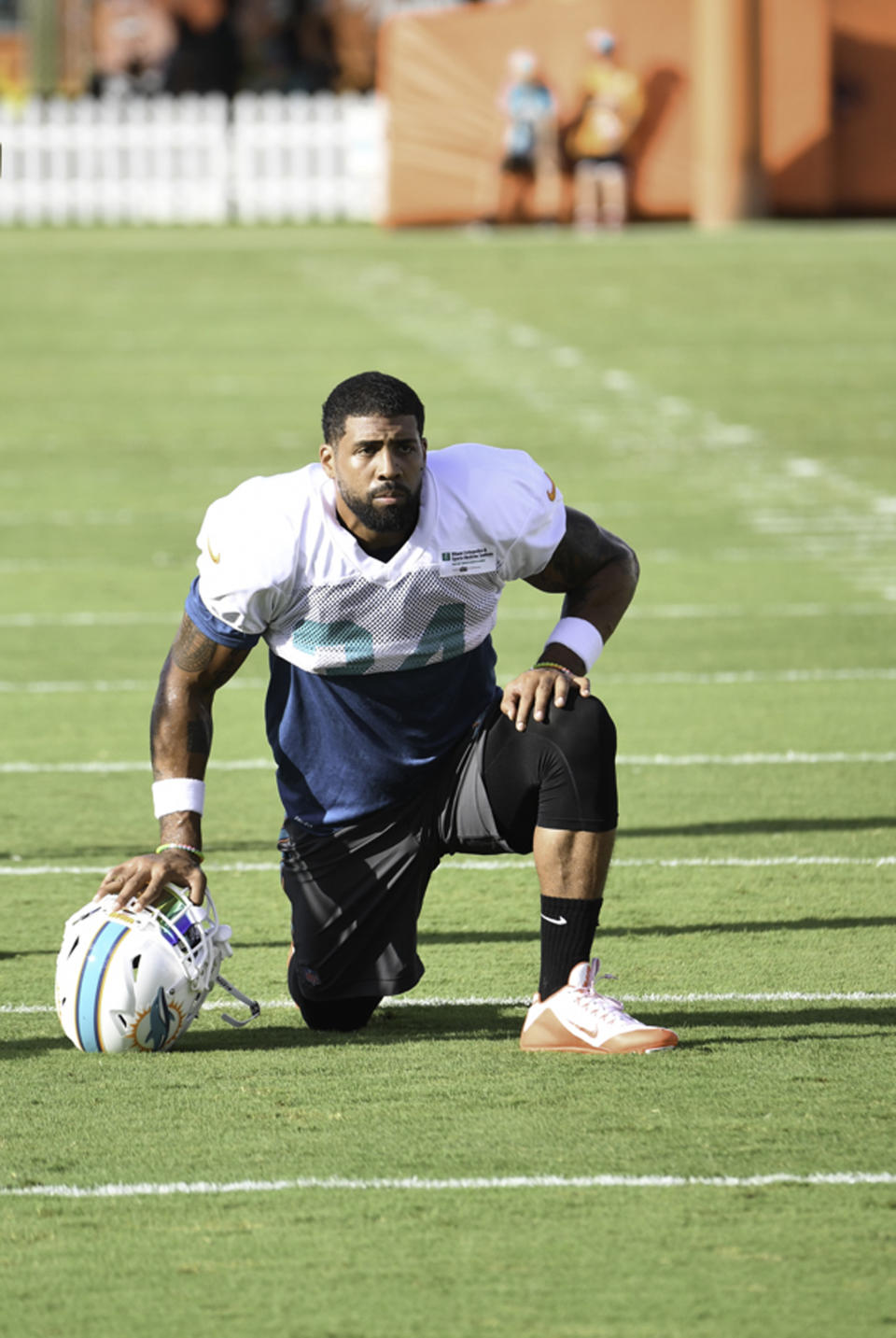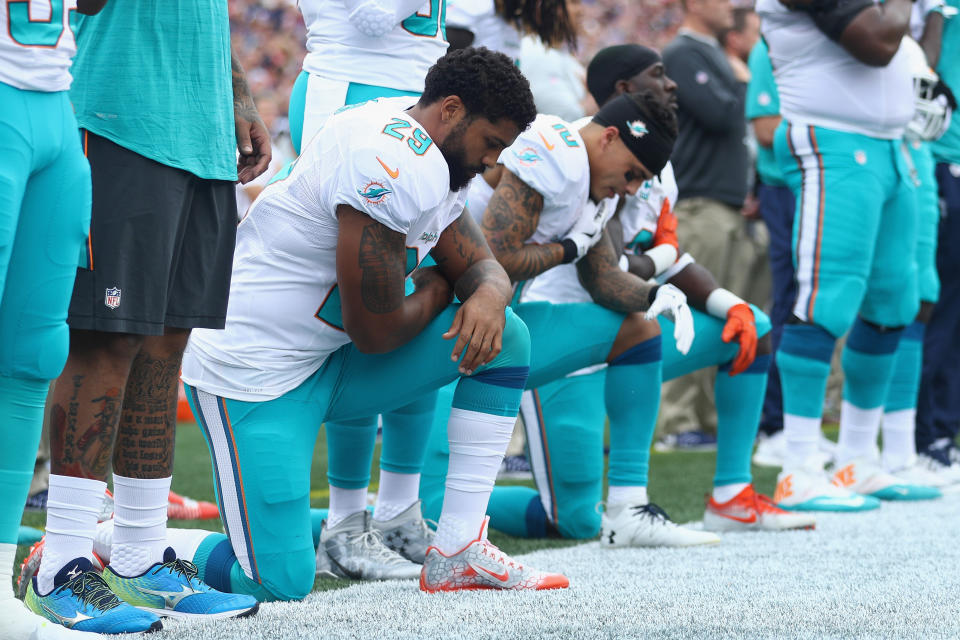Former NFL star Arian Foster understands why you're skeptical of his new rap career
Arian Foster is no stranger to attention. The former NFL player — an SEC college star at Tennessee and veteran of the Miami Dolphins and Houston Texans — had the spotlight turned on him during his years as a professional athlete for what were considered unorthodox practices, including atheism (no small factor when playing in the Bible Belt), national anthem kneeling, and a vegan diet.
Having been labeled “the most interesting man in the NFL,” Foster has expounded on that title upon retirement from football, moving on to that most elusive career shift: From sports to music. Foster’s newly dropped rap album, Flamingo and Koval — which he recorded under the alter ego Bobby Feeno — pays tribute to his first passion, which he’d pursued as a child way before athletics entered the picture.

Named after the Las Vegas intersection where Tupac Shakur was killed in 1996, the project mixes masterful and lush production with live instruments and a thoughtful slate of lyrics inspired by Foster’s take on social issues of the day, as well as his upbringing in New Mexico, which mixed his mother’s love of classic rock and country with his father’s Los Angeles-bred hip-hop leanings.
When asked why so few professional sports players have been able to make the leap to creative pursuits such as music, Foster is candid. “I think it’s because of the quality of music isn’t really good,” he shrugs. “The track record of athletes in music has been awful — I’ll be the first to admit. I’ve given a lot of my favorite athletes’ music a try, and I’m just like, this is awful. It’s really bad.
“I mean, it’s just the truth. I’m not sure if it has a lot to do with talent more so than the care that people put into the work that goes into making an album,” he stresses. “I care about the product, I care about the historicity of music, where it comes from, what it does for people. And so when you take all those things to account, it takes up a lot of your time… and I think when you add all those things up, athletes don’t really have the time to care about the music like that.
“I think that that’s the biggest hurdle — getting people to say, ‘Wow, another athlete making music.’ That’s the rhetoric you get. But the beauty of it is, I’ve been getting the opposite reaction,” he says. “Like, ‘I wanted to hate this, I wanted to go in joking on this, I want to go in laughing at this.’ But then they come out saying this is quality. That’s all I want for people to just give it a chance because I feel like from the onset, as soon as the first track hits, you’ll see that it’s different.”
Foster isn’t just paying lip service. He notes that his album was a long time in the making — starting around 2013 — and that he himself wasn’t able to work on it while actively playing sports. “Football definitely takes a lot of time, but also it takes a lot of energy. It’s not like working in a cubicle. You have to actually exert physical energy into your product,” he explains. “So, I was trying to balance that and making this record, and I wanted to put it out while I was playing — but I just couldn’t do it. I didn’t have the time or the energy.
“When I retired [in 2016] I really got a chance to dig in and do the things that I wanted to do with it.”

One of the things that makes Foster’s album particularly interesting is his unvarnished commentary, having come from what some might consider the “fishbowl” environment of the NFL, which has been under a spotlight in recent years for its handling of political viewpoints, including a new controversial policy announced May 23 stating players must stand for the anthem or be fined.
Foster is pragmatic: “It used to be you go to work, and you mingle with your coworkers, and you don’t really have to dig into their ideologies and what they really believe, right? But now everybody’s on Facebook, everybody’s on Twitter, Instagram … and you kind of align yourself with certain ideologies, and these conversations are beginning to surface.
“So right now I think it’s just a lot of tension between people because they don’t know how to have civil discourse with somebody who disagrees with them. I think this is the peak of it right now because this is new. This internet culture is still a baby.”
“I think the NFL in general shies away from those conversations … it’s the body under the rug,” he muses. “But it’s important to have these conversations. As much as you want to try to disassociate politics and sports, you can’t. I think the benefit that this has brought is, it forced players, it forced the average citizen, it forced people that wouldn’t necessarily think about these political issues to have an opinion on them.”
Foster actively works to broaden his own slate of opinions, running his own weekly podcast, Now What? With Arian Foster, in which he hosts discussions on current events with basically anyone he finds interesting — from fellow athletes to scholars to musicians such as Snoop Dogg. He terms it “having an opportunity to grow through conversations.”
A post shared by feeno (@arianfoster) on Mar 2, 2018 at 11:20am PST
Despite any confining parameters of his former career, Foster is grateful for the lessons he learned as a professional athlete in the spotlight. “The discipline it took for me to obtain the levels of success that I did in the NFL — it’s easily transferrable to music,” he admits. “It’s a work ethic. I used to get up at five in the morning and work out, have a light snack, take a nap, work out in the afternoon, take a nap, have lunch, work out in the afternoon or late evening. There used to be a strict plan, and I used to follow it to a T, and there’s nothing that led me off course.
“That discipline — it’s transferable to music. It’s not as, it’s definitely not as physical or as tiring. But that work ethic, it still remains. It never leaves me because it’s just something that was instilled in me.”
Also, he relates that his past work has prepared him to stay mentally balanced as a musician in the public eye. “If this [album] ever does anything, and I have a fan base or end up having any kind of fandom with it, I understand that aspect of it now,” he muses. “Whereas when I was going into the NFL, I was kind of blindsided by what fame was.
“So now, if anything comes of this, I understand that aspect of it way better.”
Read more from Yahoo Entertainment:

